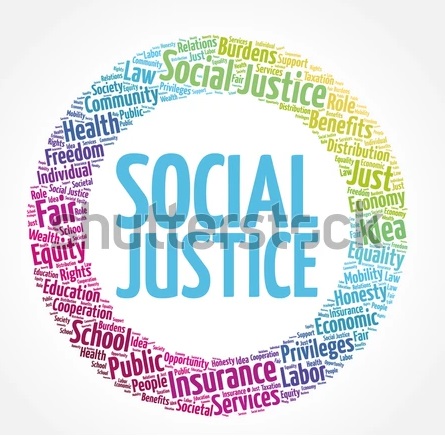
Achieving social justice through formal employment
Social justice is justice in the distribution of wealth, opportunities and privileges within a society.
February 22 each year is commemorated as World Day of Social Justice.
The day was first announced by the UN to show commitment to continuous social justice and fair globalisation in June 2008 and has been commemorated every year since then and adopted by the International Labour Organisation (ILO) as one of its core working principles.
The commemoration of the day is in line with the UN’s efforts at ensuring social justice as part of its global mission in the promotion of social development and human dignity.
The theme for the commemoration this year is: “Achieving social justice through formal employment”.
The theme is apt, as we remember that individual successes can only be enjoyed when the collective is also successful.
The World Day of Social Justice affords opportunities for reflection on guaranteeing fair outcomes for all through employment, social protection, social dialogue, fundamental principles and rights at work.
Unemployment and gender inequality are but a few of the social ills bedevilling Ghana, as we commemorate the day this year.
The challenge of unemployment is increasingly becoming unbearable. The teeming youth in sub-Saharan Africa are wasting away, with no opportunities in health, education, leisure or even pleasure.
In Ghana, we have a youth bulge, according to the Ghana Statistical Service (GSS), that would be a liability if social, economic and other opportunities are not opened up for their growth and development.
With gender inequality, Ghana is still grappling with the Property Rights of Spouses Bill, which ensures that women are not short-changed when it comes to owning parts of properties acquired in marriage.
The Affirmative Action Bill, which seeks to ensure women’s participation and representation in decision-making roles and boardrooms, is also a critical piece of legislation yet to be passed.
But, primarily, about 80 per cent of workers in Ghana are in informal employment, with insecure tenures, inconsistent salaries and indecent working conditions.
All such workers need to be transitioned to more formal employment arrangements where there is security of tenure and income.
If we achieve that, we gain social justice for all that is desired, hence the theme: “Achieving social justice through formal employment”.
In the same way, employment challenges among the youth need immediate remedial measures to ensure justice for the youth. This is because gainful employment makes men and women of our youth.
Our policy makers should, therefore, not go to sleep as they deal with unemployment. Gainful employment will open up for our youth opportunities in health, education and innovation.
With women, ensuring their place in the economy of the country will lead to better economic outcomes for all. Therefore, every legislation that ensures that women have a place in decision making needs to be expedited.
The Ministry of Gender, Children and Social Protection must liaise with the Ministry of Employment and Labour Relations, as well as relevant government agencies, to ensure that all social injustices are redressed.
The GSS has furnished the country with more information on inequalities, and that data should be the basis for the better distribution of resources for social justice.
